




When it comes to cooking and baking, vinegar is a staple ingredient that adds a tangy and acidic flavor to various dishes. However, with so many types of vinegar available, it can be confusing to know which one to use for a specific recipe. One common question that often arises is whether spirit vinegar is the same as white vinegar.
To clarify, spirit vinegar and white vinegar are not the same thing, although they do share some similarities. Both types of vinegar are made from the fermentation process of ethanol, a type of alcohol. However, the key difference lies in the starting material used to produce these vinegars.
White vinegar is typically made from distilled grain alcohol, such as corn or wheat, which is then diluted with water to reach an acidity level of around 5-8%. This type of vinegar has a clear and colorless appearance, with a sharp and intense flavor that makes it suitable for various culinary uses, including pickling, cleaning, and preserving food.
Spirit vinegar, on the other hand, is made from the fermentation of sugar cane and has a slightly milder flavor compared to white vinegar. It is commonly used in the production of condiments, sauces, and dressings for its distinctive taste. Spirit vinegar is also known for its light yellow color, which comes from the natural pigments found in sugar cane.
In conclusion, while spirit vinegar and white vinegar both undergo a fermentation process and are acidic in nature, they are made from different starting materials, resulting in variations in flavor and appearance. Understanding the differences between these two types of vinegar can help you choose the right one for your culinary needs.
About Spirit Vinegar
Spirit vinegar, also known as distilled vinegar or white vinegar, is a type of vinegar that is made through the process of fermentation and distillation. It is primarily made from the fermentation of distilled alcohol, such as grain alcohol or ethyl alcohol, which is then distilled and diluted to achieve the desired acidity level.
This type of vinegar is clear and colorless, with a strong and sharp flavor. It is commonly used as a condiment, preservative, and flavoring agent in various cuisines around the world. Spirit vinegar is a versatile ingredient and is often used in salad dressings, marinades, pickled vegetables, and sauces.
Spirit vinegar has a high acidity level, typically ranging from 4% to 7% acidity. This high acidity gives it its distinct tangy taste and also acts as a natural preservative, helping to inhibit the growth of bacteria and spoilage organisms in food.
It is important to note that spirit vinegar should not be confused with other types of vinegar, such as malt vinegar, apple cider vinegar, or balsamic vinegar. While these vinegars are also made through the process of fermentation, they have different flavor profiles and uses.
Key Characteristics of Spirit Vinegar
- Clear and colorless
- Strong and sharp flavor
- High acidity level (4% to 7%)
- Versatile ingredient in various cuisines
- Used as a condiment, preservative, and flavoring agent
Uses of Spirit Vinegar
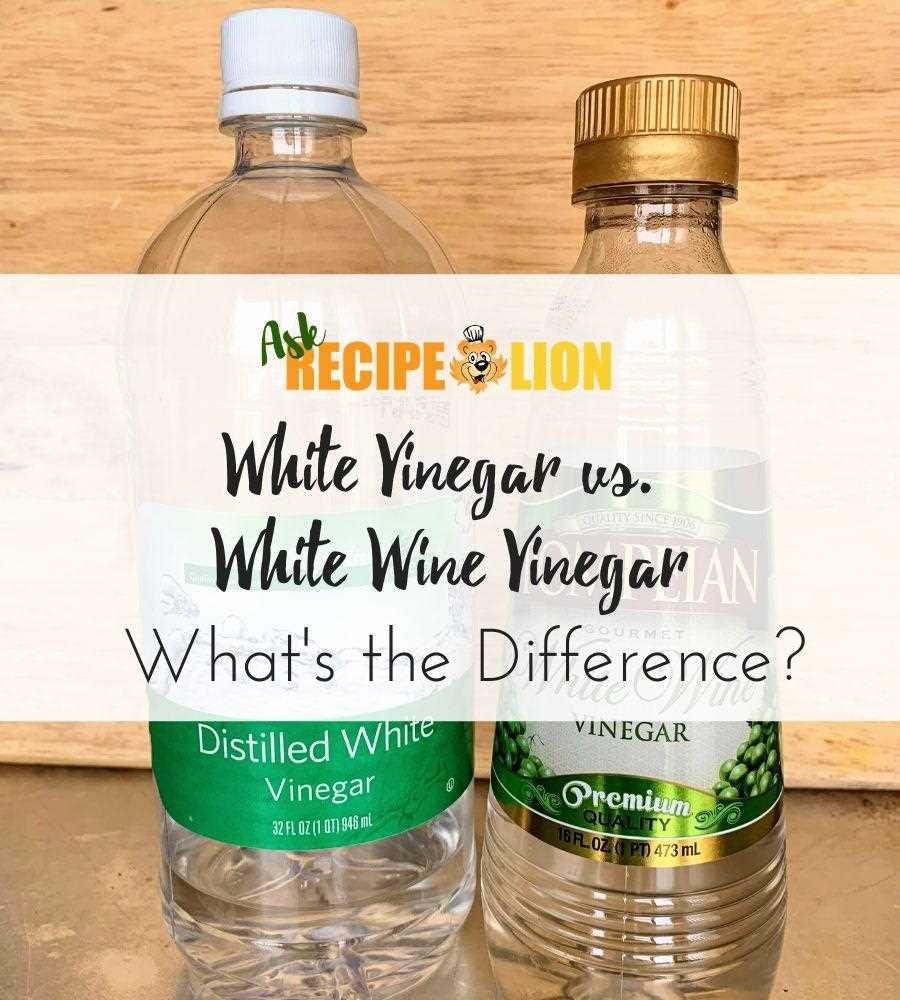
Spirit vinegar has many culinary uses and is a staple in many kitchens. Some common uses of spirit vinegar include:
- Salad dressings: Spirit vinegar is often used as a key ingredient in homemade salad dressings, adding tanginess and flavor.
- Marinades: Spirit vinegar can be used as a base for marinades, tenderizing and adding flavor to meats and vegetables.
- Pickling: Spirit vinegar is commonly used in the pickling process, preserving vegetables and fruits and giving them a tangy taste.
- Sauces and condiments: Spirit vinegar is used in various sauces and condiments, such as ketchup, mayonnaise, and hot sauce, to add acidity and flavor.
Conclusion
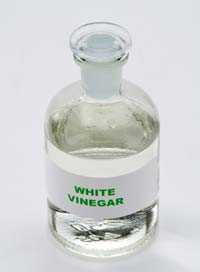
Spirit vinegar, also known as distilled vinegar or white vinegar, is a versatile condiment with a strong and sharp flavor. It is made through the process of fermentation and distillation, resulting in a clear and colorless liquid with a high acidity level. Spirit vinegar is commonly used in salad dressings, marinades, pickling, and sauces, adding tanginess and flavor to various dishes.
About White Vinegar
White vinegar, also known as distilled vinegar, is a type of vinegar that is made from the fermentation of distilled alcohol. It is a clear, colorless liquid that is commonly used in cooking, cleaning, and other household applications.
White vinegar has a sharp, acidic taste and a strong smell. It is often used as a condiment, salad dressing, or ingredient in marinades, sauces, and pickling recipes. It can also be used as a cleaning agent due to its acidic properties.
White vinegar is versatile and affordable, making it a popular choice for many households. It is readily available in most grocery stores and can be found in various sizes and strengths. The acidity of white vinegar can range from 4% to 7%, with higher concentrations being more acidic.
In addition to its culinary and cleaning uses, white vinegar can also be used for various other purposes. It is often used as a natural remedy for various ailments, such as sore throat, sunburn, and insect bites. It can also be used as a natural weed killer, fabric softener, and deodorizer.
When using white vinegar for cooking or cleaning, it is important to note that its strong smell and taste may linger. It is recommended to dilute white vinegar with water or other ingredients to mellow its flavor and scent.
Overall, white vinegar is a versatile and affordable ingredient that can be used for various purposes. Its acidic properties make it a useful tool in the kitchen, as well as for cleaning and other household tasks.
Differences in Production Process
Fermentation
Spirit vinegar and white vinegar have different production processes, with the main difference occurring during the fermentation stage.
White vinegar is typically made from the fermentation of a distilled alcohol, such as grain alcohol or ethanol. This fermentation process involves the conversion of the alcohol into acetic acid by bacteria. The resulting liquid is then filtered and diluted to achieve the desired acidity.
Spirit vinegar, on the other hand, is made from the fermentation of a liquid containing alcohol, such as wine. The alcohol in the liquid is converted into acetic acid through a two-step fermentation process. The first step involves the conversion of the alcohol into acetaldehyde, and the second step involves the conversion of acetaldehyde into acetic acid.
Ingredients
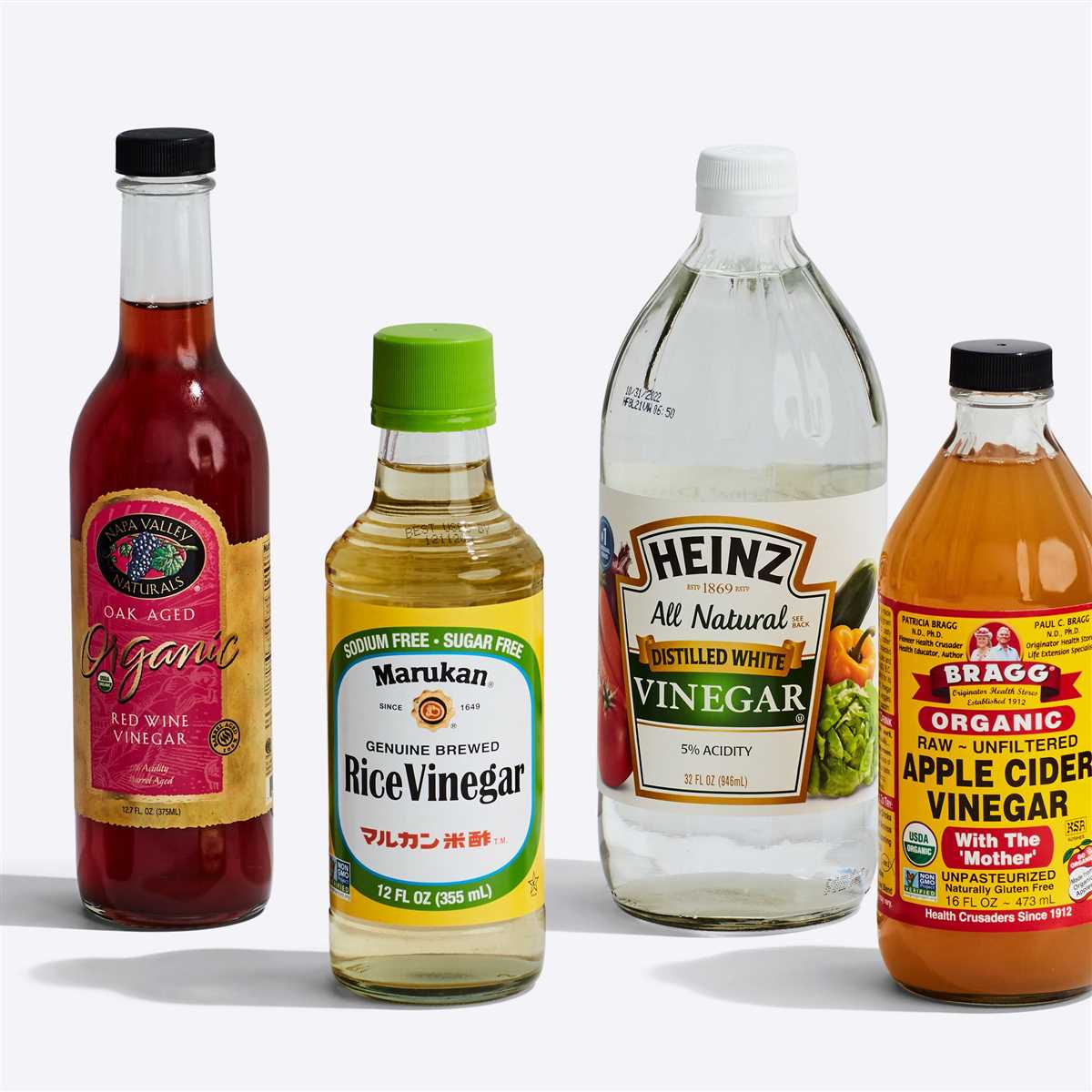
Another difference in the production process of spirit vinegar and white vinegar lies in the ingredients used.
White vinegar is made from distilled alcohol, whereas spirit vinegar is made from a liquid containing alcohol, such as wine. This difference in ingredients gives spirit vinegar a distinct flavor and aroma compared to white vinegar.
Aging

While both spirit vinegar and white vinegar can be aged, the aging process differs between the two.
White vinegar is typically aged in stainless steel tanks for a short period of time to allow any remaining impurities to settle. This aging process helps to refine the vinegar and remove any unwanted flavors.
Spirit vinegar, on the other hand, can be aged in wooden barrels, similar to wine or whisky. This aging process can add additional flavors and complexity to the vinegar, giving it a unique taste compared to white vinegar.
Uses
Due to the differences in production process and ingredients, spirit vinegar and white vinegar have different uses in cooking and other applications.
- White vinegar is commonly used for pickling, as a household cleaner, and as an ingredient in recipes that require a strong acidic flavor.
- Spirit vinegar is often used in the production of sauces, dressings, and marinades due to its distinct flavor profile. It is also used in a variety of traditional recipes, especially in European cuisine.
Uses and Benefits of Spirit Vinegar
1. Cooking
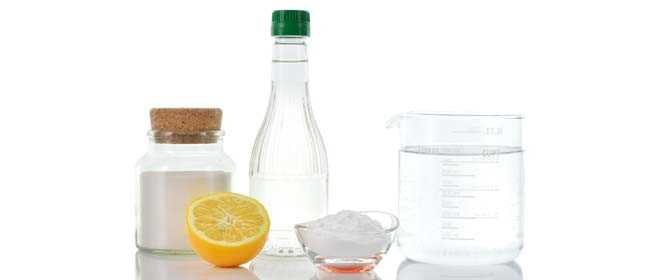
Spirit vinegar is commonly used in cooking for a variety of purposes. It can be used as a condiment or dressing, added to marinades and sauces, or used in pickling. Its sharp and tangy flavor helps enhance the taste of various dishes.
2. Cleaning
Spirit vinegar can be used as a natural and eco-friendly cleaning agent. Its acidity makes it effective in cutting through grease, grime, and mineral deposits. It can be used to clean kitchen countertops, appliances, and bathroom surfaces.
3. Pest control
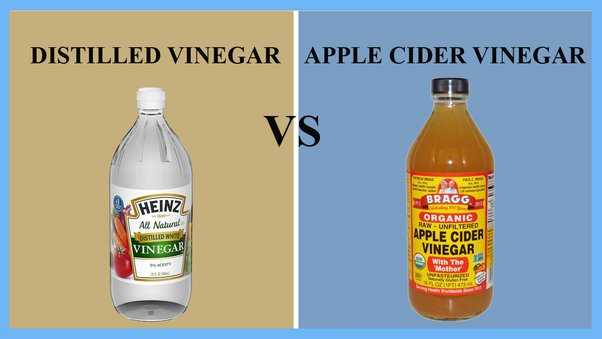
Spirit vinegar can be used to repel certain pests, making it a natural alternative to chemical insecticides. When used in combination with water and other ingredients, it can create an effective solution to deter ants, fruit flies, and other unwanted insects.
4. Health benefits
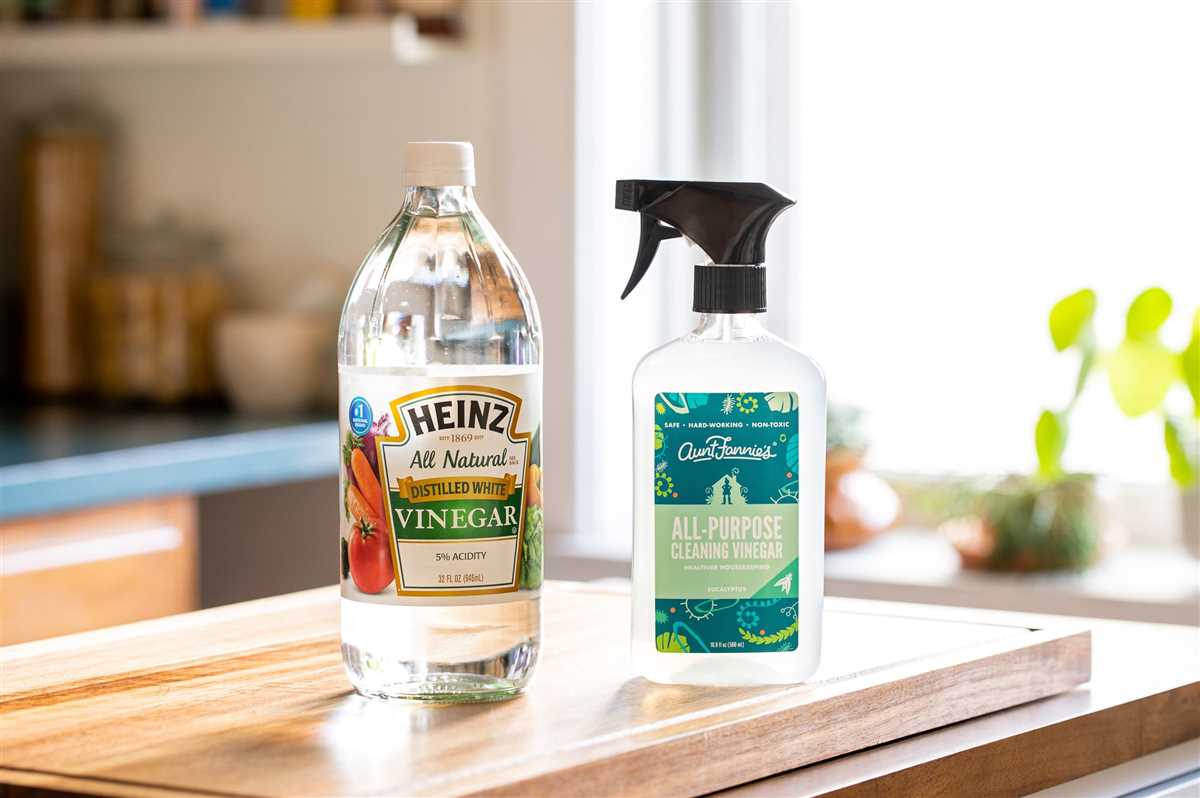
Spirit vinegar has been associated with several health benefits. Due to its acidic nature, it can help with digestion and improve nutrient absorption. It is also believed to have antimicrobial properties, which can help fight against harmful bacteria.
5. Weed control
Spirit vinegar can be used as a natural weed killer. When applied directly to weeds, its acidity can cause them to wither and die. This makes it a non-toxic alternative to chemical herbicides and a safe option for those who want to maintain a weed-free garden.
6. Home remedies

Spirit vinegar is a common ingredient in many home remedy recipes. It is believed to have a range of health benefits, including soothing sore throats, relieving sunburns, and alleviating symptoms of dandruff. However, it is important to note that these remedies may not be scientifically proven.
| Use | Benefits |
|---|---|
| Cooking | Enhances flavor |
| Cleaning | Effective on grease and grime |
| Pest control | Natural repellent |
| Health benefits | Aids digestion and has antimicrobial properties |
| Weed control | Natural alternative to herbicides |
| Home remedies | Potential relief for various ailments |
Uses and Benefits of White Vinegar
White vinegar, also known as distilled vinegar, is a versatile household product that offers a wide range of uses and benefits. From cooking and cleaning to gardening and health, white vinegar has many practical applications. Here are some of its most common uses:
Cooking
- Marinades: White vinegar can be used as a base for marinades to tenderize and flavor meats.
- Dressings and sauces: It can be added to dressings and sauces to enhance their taste.
- Pickling: White vinegar is commonly used for pickling fruits, vegetables, and other foods.
- Baking: It can be used as a leavening agent in baked goods, especially when combined with baking soda.
Cleaning
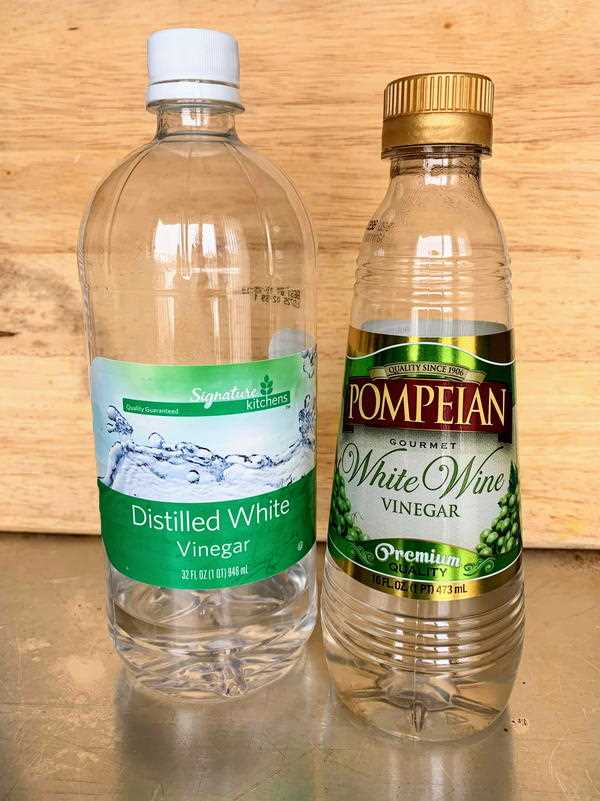
- All-purpose cleaner: White vinegar can be used as a natural, non-toxic cleaner for various surfaces, including countertops, windows, and floors.
- Deodorizer: It can eliminate unpleasant odors in the kitchen, bathroom, and other areas of the house.
- Stain remover: White vinegar can help remove stains from clothing, carpets, and upholstery.
- Dishwasher and coffee maker cleaner: It can be used to clean and descale dishwashers and coffee makers.
Gardening

- Weed control: White vinegar can be used as an eco-friendly herbicide to kill unwanted weeds in gardens and between cracks in pavement.
- Soil acidifier: It can be used to lower the pH of soil for plants that prefer acidic conditions.
- Plant pest deterrence: White vinegar can help repel insects and deter pests from damaging plants.
- Fertilizer booster: It can be added to water and used as a fertilizer booster for plants.
Health and Wellness
- Sore throat remedy: Gargling a mixture of white vinegar and warm water can help soothe a sore throat.
- Foot odor treatment: Soaking feet in a mixture of white vinegar and water can help eliminate foot odor.
- Teeth whitener: Brushing teeth with a paste made of baking soda and white vinegar can help whiten teeth.
- Weight loss aid: Consuming small amounts of white vinegar before meals may help reduce appetite and promote weight loss.
In conclusion, white vinegar is a versatile and inexpensive household product with numerous uses and benefits. Whether you use it for cooking, cleaning, gardening, or improving your health, white vinegar can be a valuable addition to your everyday life.
FAQ
What is the difference between spirit vinegar and white vinegar?
Spirit vinegar and white vinegar are different types of vinegars. Spirit vinegar is made from the fermentation of ethanol, while white vinegar is made from the fermentation of sugar or a mixture of molasses and water. So, the main difference lies in their production process.
Can I use spirit vinegar instead of white vinegar?
Yes, you can use spirit vinegar instead of white vinegar in most recipes. However, spirit vinegar has a stronger and harsher taste compared to white vinegar, so you may notice a difference in the flavor of your dish.
Is spirit vinegar more acidic than white vinegar?
Yes, spirit vinegar is generally more acidic than white vinegar. Spirit vinegar typically has an acidity level of 5-8%, while white vinegar has an acidity level of around 4-7%. The higher acidity of spirit vinegar can make it a more effective cleaning agent.
Are there any health benefits to using spirit vinegar over white vinegar?
Both spirit vinegar and white vinegar have similar health benefits, as they are both types of vinegar. They can help with digestion, blood sugar control, and weight management. However, it’s worth noting that excessive consumption of vinegar, regardless of the type, may have negative effects on health.
Can I use spirit vinegar for cleaning purposes?
Yes, spirit vinegar can be used for cleaning purposes. Its higher acidity makes it effective for removing stains, disinfecting surfaces, and even as a natural weed killer. Just like with white vinegar, it’s important to dilute spirit vinegar with water before using it for cleaning.
Which type of vinegar is better for pickling: spirit vinegar or white vinegar?
Both spirit vinegar and white vinegar can be used for pickling, but white vinegar is more commonly used. It has a milder flavor that allows the flavors of the spices and other ingredients in the pickling solution to shine. Spirit vinegar’s stronger taste may overpower the flavors of the pickled foods.













